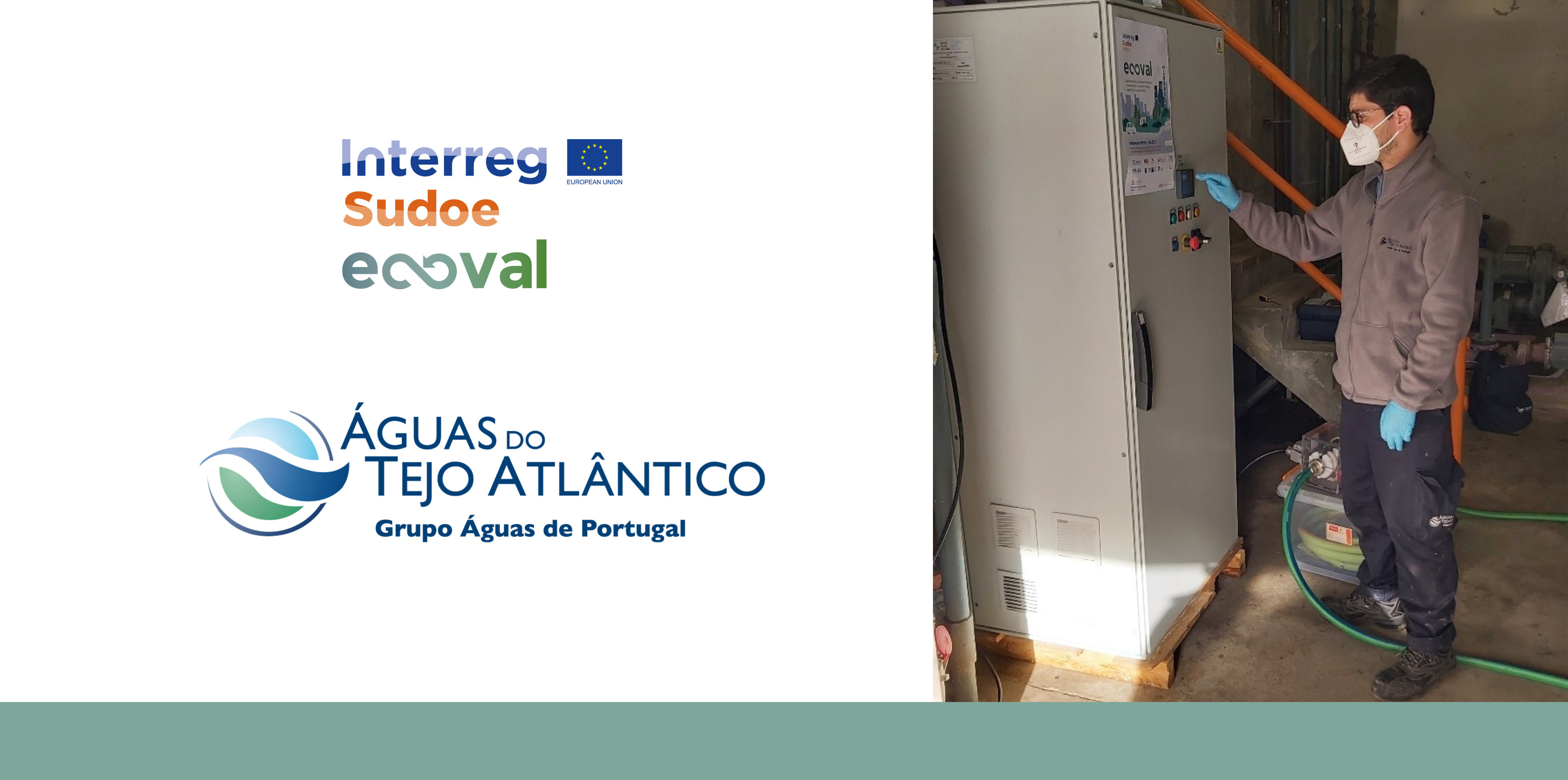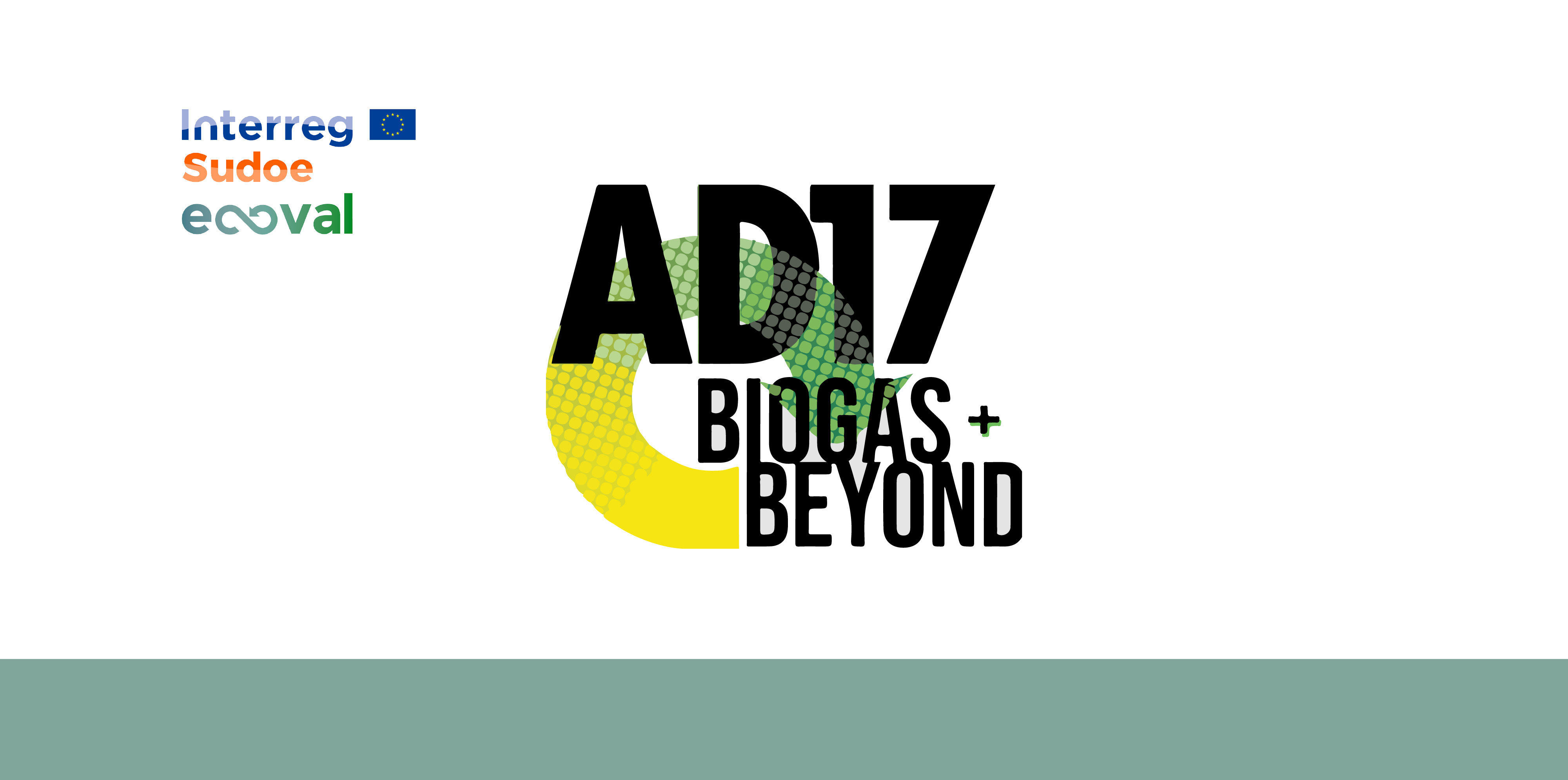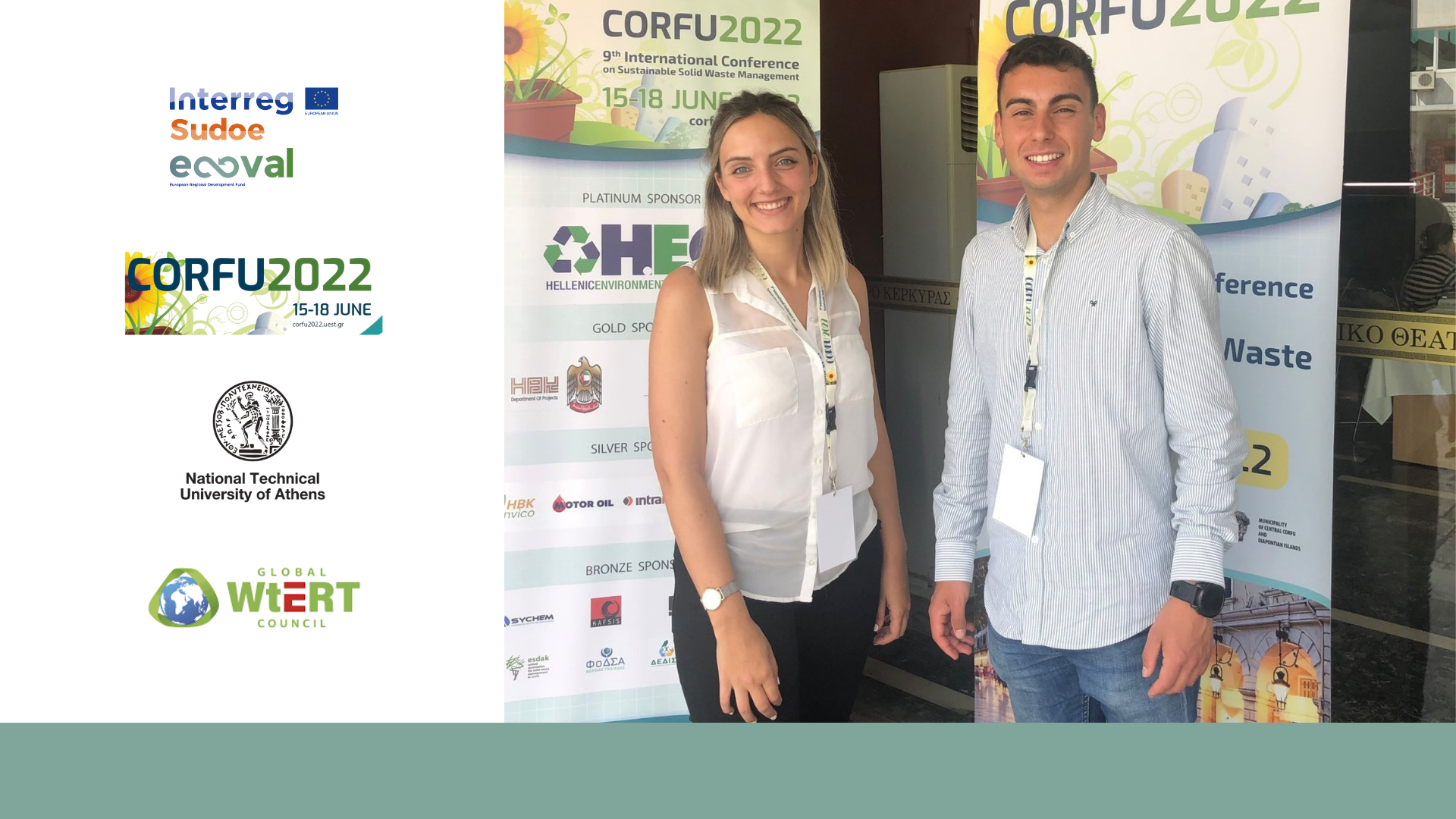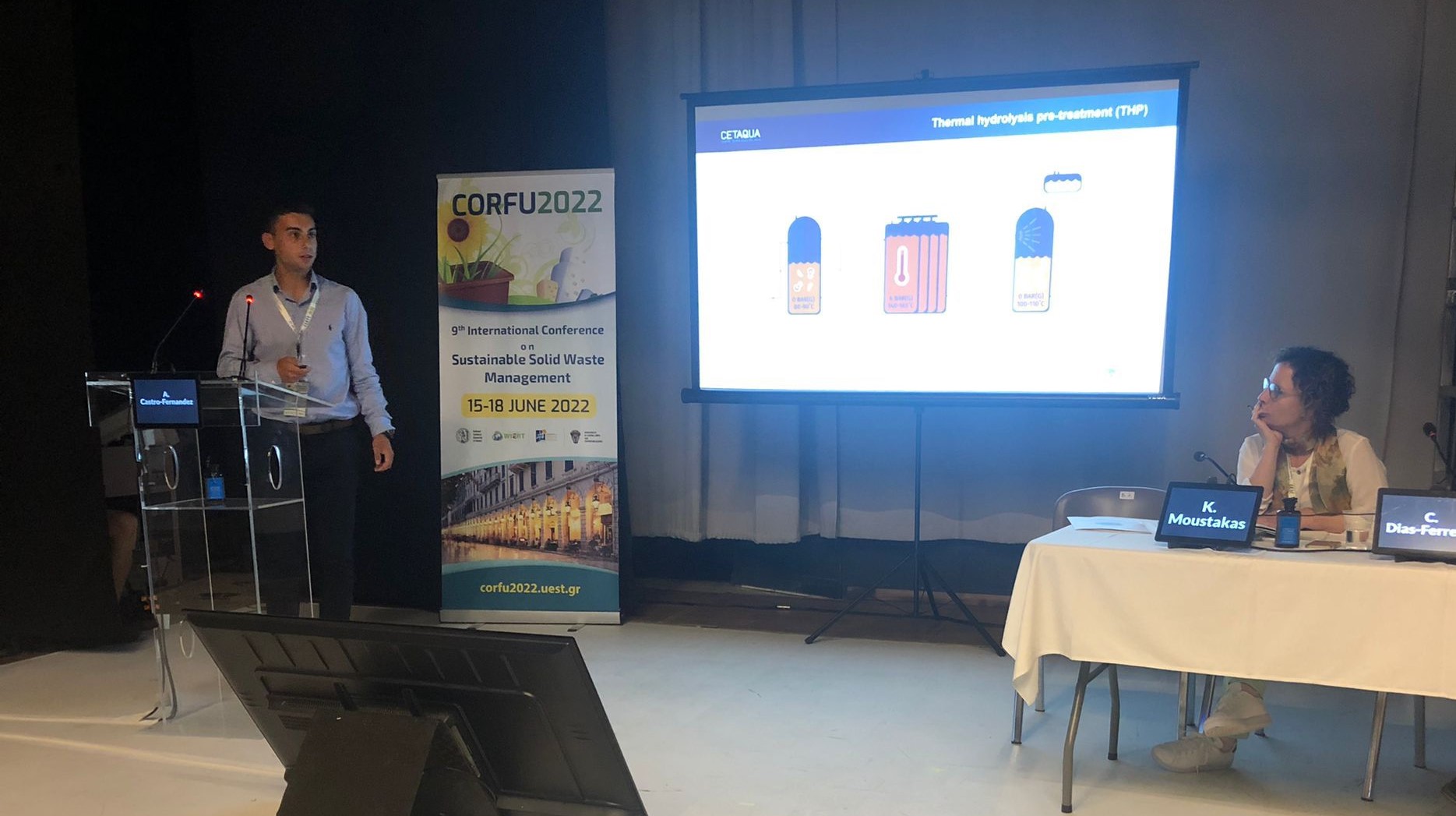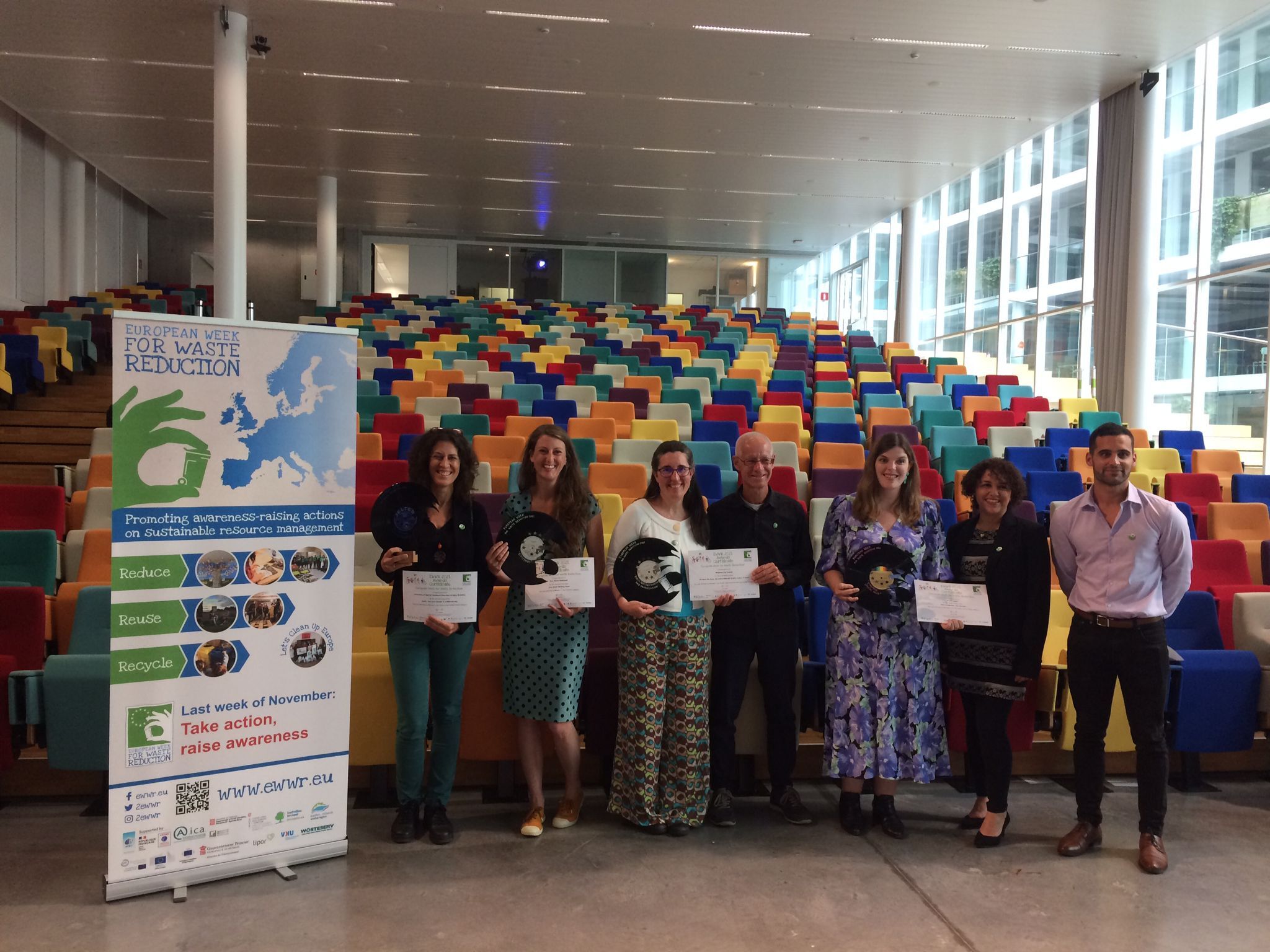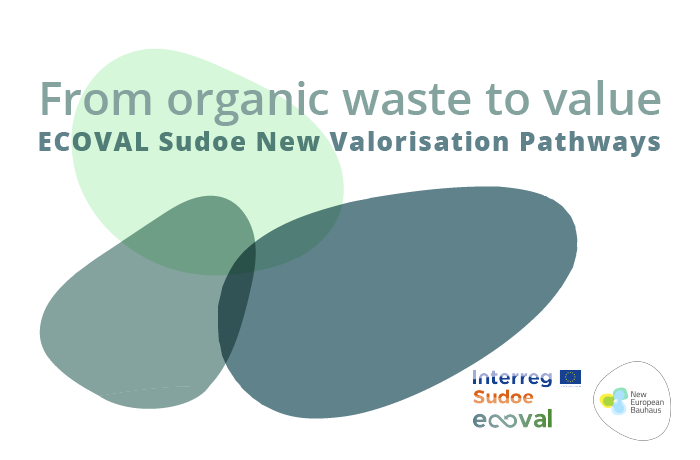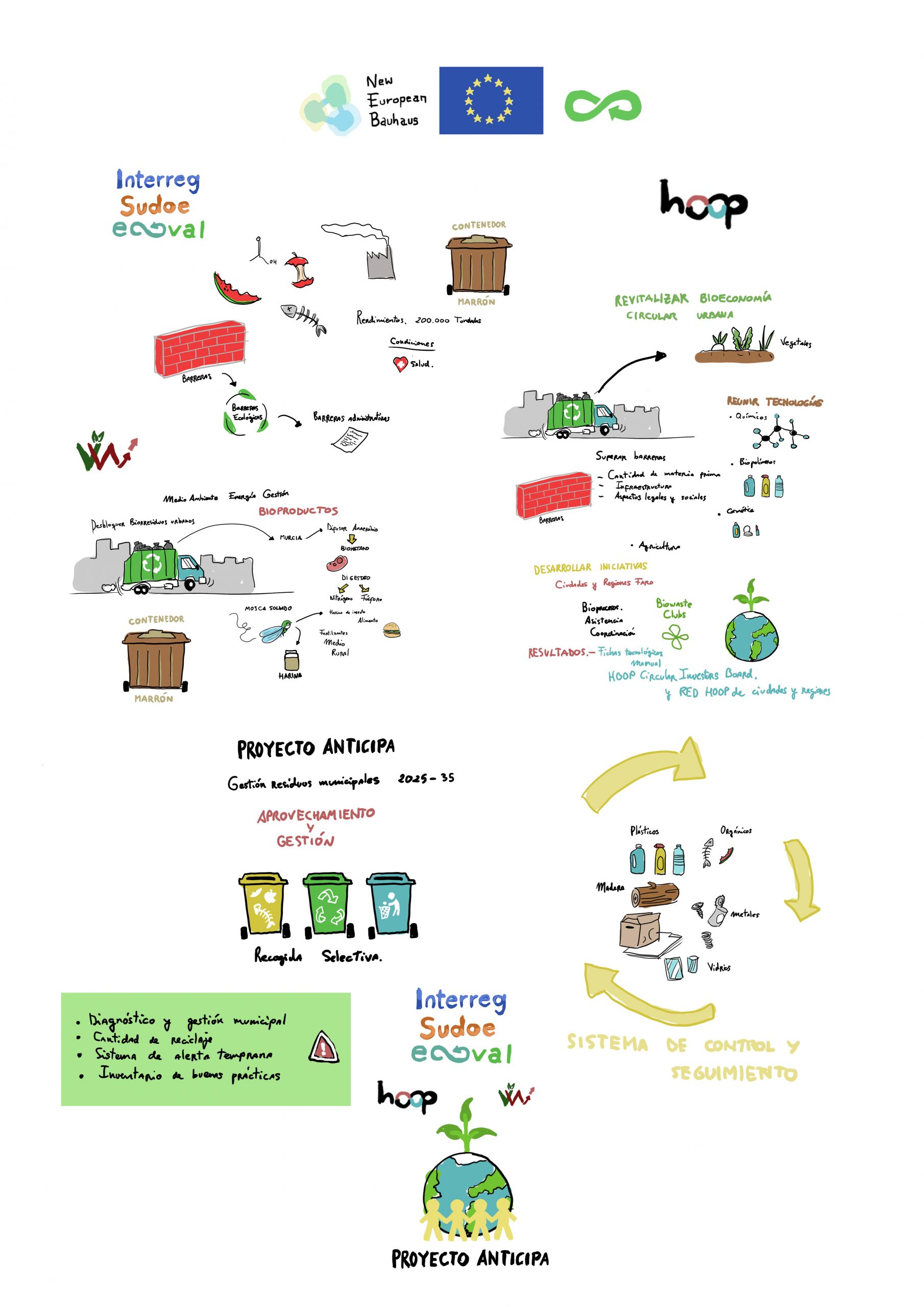ECOVAL Sudoe proposes a new approach to the management of organic waste based on its recovery to obtain volatile fatty acids (VFA), secondary raw materials useful for industries such as plastics, lubricants or agrochemicals.
Águas do Tejo Atlântico (AdTA), a member of the ECOVAL consortium, is collaborating in overcoming technical and legal barriers to the valorisation of VFA from sewage sludge and bio-waste. This requires the cooperation of different actors in the SUDOE region (sewage and waste companies, research centres, environmental authorities, legal advisors and sector associations) to change the legal framework that allows the use of products obtained from waste. In order to identify barriers, two participatory workshops were held in which the similarities in the legal and operational management of this type of waste in the 3 countries could be verified.
On the other hand, AdTA has focused on sludge pre-treatment to maximise VFA production. To this end, tests were carried out with pulsed electric field technology using waste sludge from the biological treatment of the Frielas WWTP and thickened mixed sludge from the Beirolas WWTP. The two tests were carried out to check if there is any advantage in the pretreatment of only biological sludge and if the solids content of the sludge affected the effectiveness of the pulsed electric field technology.
Finally, AdTA has participated in the quantification of the sludge produced in Portugal, as well as its quality. This work will support the analysis of environmental and economic sustainability that will be carried out in the project, framed in Working Group 6 of the Project: Replicability and transferability of the business model and its environmental and economic assessment.


